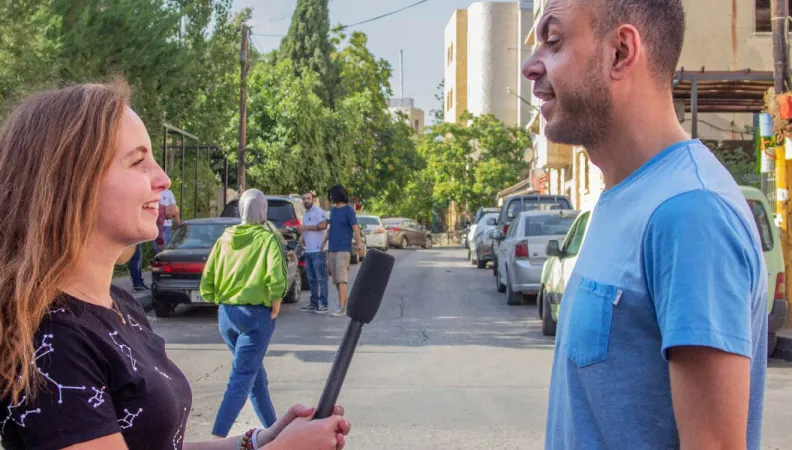Share the page
Qarib: The Middle East Media Underpinning the Social Bonds
Project


-
Project start date
-
Status
Ongoing
-
Project duration
-
5 years
-
AFD financing amount
-
€ 10 370 000
-
Location
-
Iraq, Jordan, Lebanon, Palestine
-
Type of financing
-
Beneficiaries
-
CFI Media Development
Having suffered from strong inter-community tensions, Middle Eastern societies are expressing major demands for transparency and citizen participation in public affairs. AFD wishes to support media outlets whose content aims to both improve relations among citizens and bring governments and societies closer together, so as to reduce tensions among individuals, communities, and public authorities.
Context
Confronted with economic, social, political, and environmental imbalances, the Middle East has been facing a wave of protest movements and large-scale armed conflict since 2011. The forced displacement caused by the fighting in Syria and Iraq has exacerbated these imbalances and increased community tensions. In all the countries of the region, there are traditional media outlets that practice institutional and opinion journalism, publishing politicized and polarizing content. They forget to talk about/ to citizens about matters of common interest. These citizens, especially the youth, are overwhelmingly turning to social media where pejorative, even conspiratorial content is proliferating, in addition to fake news. This trend has been aggravated by the difficulties that independent media outlets, particularly the digital among them, have been facing in falling within sustainable economic models.
Description
An emblematic project of the Minka Middle East Initiative, Qarib aims to foster social cohesion at the regional, national, and local levels, and to promote, through better media coverage, the inclusion of populations, especially women, in society and public debate.
More specifically, this project is about stimulating proximity and investigative journalism, leading the media to work on themes that relate to everyone’s daily concerns. This would strengthen the independence of the media and bolster its role in the fight against disinformation, and it would lead the media to become a space for interaction and a sounding board for local initiatives taken by municipalities, associations, and young people.
At the regional level, this involves the pooling and dissemination of good journalistic practices. In each country, it would support the production of local content, strengthen media education and anti-disinformation education, support the sustainability of independent media (and the sustainability of journalism that aligns with citizens’ needs), and stimulate public debate.
Impacts
This project contributes to meeting the demand for accountability and interaction with authorities, a demand which has been expressed by the civil societies and citizens of the four countries covered by the project. Through better media coverage of subjects of general and local interest, it promotes public debate and strengthens interactions among citizens, media, and authorities, thus increasing cohesion within societies.
It responds to a significant need for support at all levels of the chain of production and consumption of media content (journalists, activists, bloggers, actors involved in citizen and local development initiatives, but also the main media, journalism schools and departments, media institutions and organizations, etc.), with particular emphasis on new media, journalists, national and local authorities, CSOs, refugees and displaced populations, host communities, women and young people, which are all considered priority targets.


